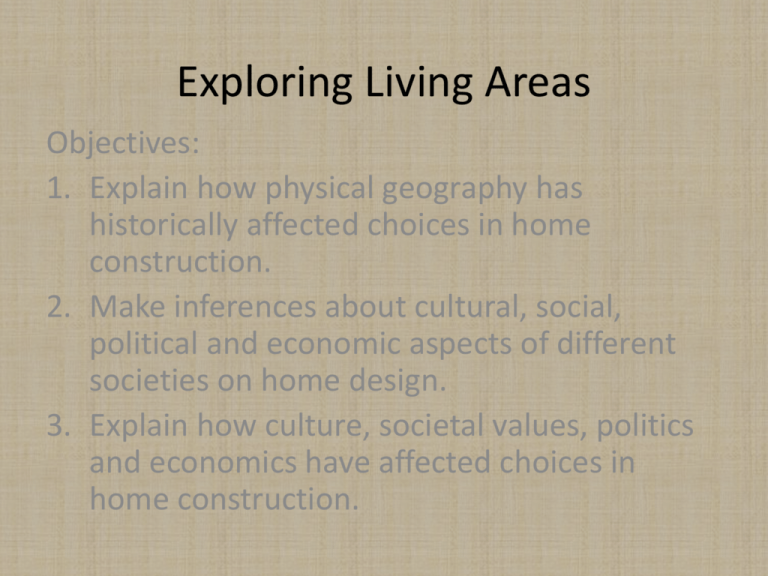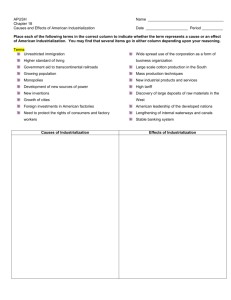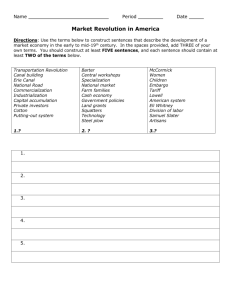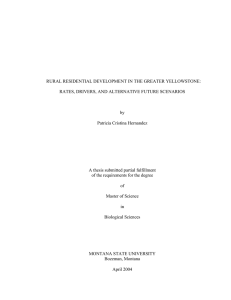Exploring Living Areas
advertisement

Exploring Living Areas Objectives: 1. Explain how physical geography has historically affected choices in home construction. 2. Make inferences about cultural, social, political and economic aspects of different societies on home design. 3. Explain how culture, societal values, politics and economics have affected choices in home construction. Warm-Up • What is a home? List all the qualities that you can think of to describe a home. • Brainstorm what factors you think people in all parts of the world considered when they built homes around 1800. I. Industrialization A. As a result of • Review: How did industrialization, industrialization populations shift lead to changing patterns of settlement? 1. Population increases 2. People move to cities, fueling demand for cheap housing 3. Gas and electricity replace the need for bins of coal in houses Guiding question: What happened in the rural areas? II. Impact in Rural Areas A. Shifts in building materials in rural areas 1. Forests depleted for fuel and building materials in urban areas 2. Brick was used more widely as forests decreased III. Looking at Latitude A. People along the same lines of latitude share many similarities in living structures. Why? B. Examples 1. Mongols of inner Eurasian steppe and Navajo of North American plains share round home designs 2. Stilt homes are found in Southeast Asia and southeastern US 3. Tree structures are typical dwellings for people in rain forests IV. Purposes of Homes A. Functional uses 1. Available resources put together for shelter from elements 2. Architecture shifts based on resources B. Emotional-cultural uses 1. Often serve as a link between spirit and mortal worlds 2. Architecture shifts based on cultural beliefs






